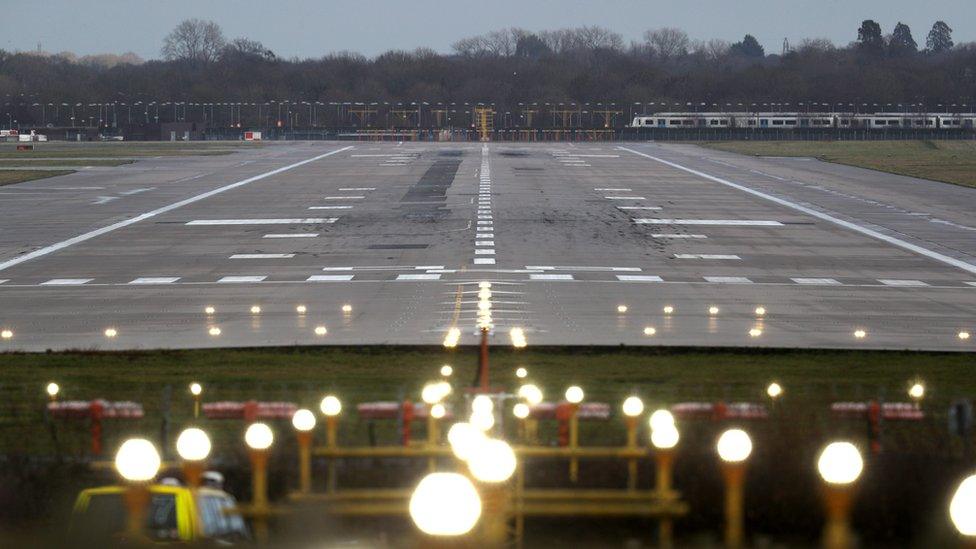Airbus plane had to return to Stansted due to filming damage
- Published
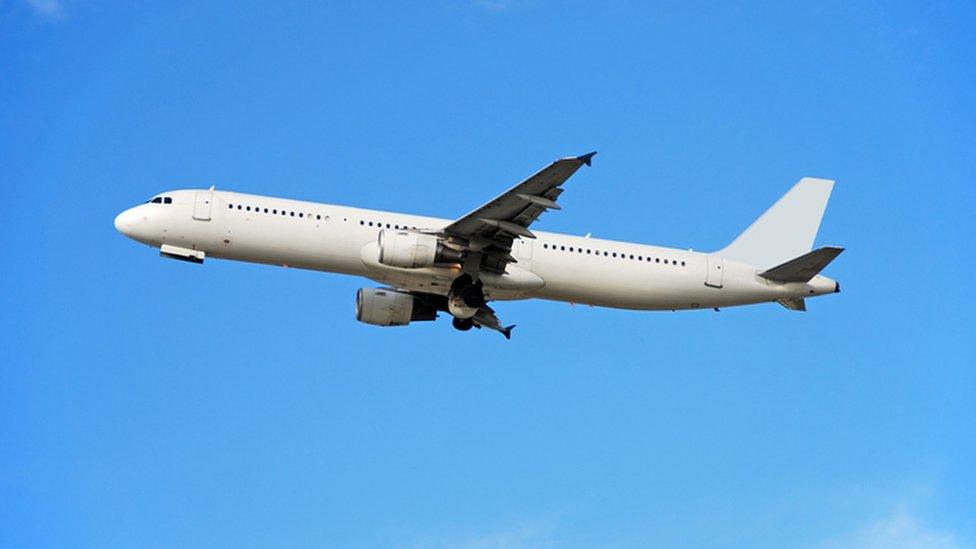
The crew in the Airbus A321 (similar to the one pictured) said the noise in the cabin was "loud enough to damage your hearing"
A passenger plane had to turn back after its window panes fell out having been melted by a film crew's high-intensity lighting, a report, external found.
The Airbus A321 took off from Stansted Airport in October when crew members noticed damage and noise.
The Air Accidents Investigation Branch (AAIB) said the acrylic panes had fallen out after reaching temperatures of up to 110C (230F) the day before.
The AAIB said the dangers were now being shared across the industry.
The Titan Airways plane had previously been used by the government and Prime Minister Rishi Sunak had flown on it, but it was being chartered privately by a different organisation when it took off from Essex on 4 October with 11 crew and nine passengers.
At 10,000ft (3,050m), crew reported a window seal "flapping" and cabin noise "loud enough to damage your hearing".
The aircraft turned back at 14,000ft (4,270m) and landed safely.
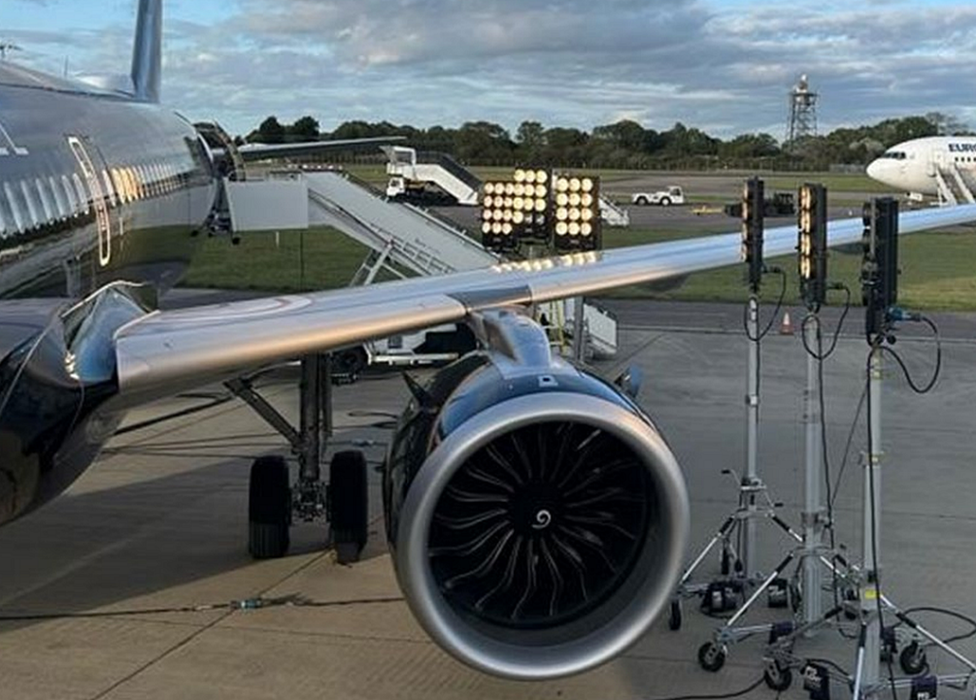
The six halogen lighting units had a combined power of 72,000 watts
The previous day, an advert had been filmed on the ground at Stansted, for which six sets of halogen lights were used to mimic a sunrise.
The report said their combined power was 72,000 watts and they were being shone on the plane at a distance of six to nine metres (20-30ft) for several hours, causing the panes to contract and seals and foam rings to melt.
Investigators found four cabin windows were affected with three outer panes and two inner panes missing. However, the scratch panes (a third pane on the inside of each window) were not damaged, so cabin pressure was maintained, the report, external said.
One pane was later found on a runway at Stansted, suggesting it had fallen before take-off, but the other four have not been found.
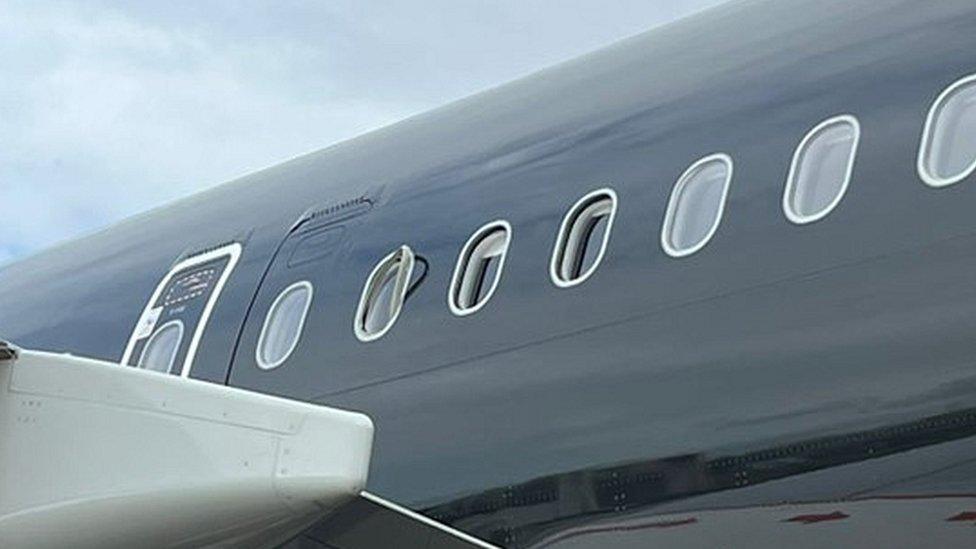
Two of the plane's windows had two panes missing, while the other two had damage but the panes were still attached to the aircraft
The AAIB said its "investigation found four previous occurrences [of melted windows] on other airframes, but knowledge of them was not widespread in the aviation community". It said in those cases the windows had been repaired before any more flights took place.
It noted there was engineering supervision during the filming but "no-one involved anticipated that the lights could damage the acrylic windows".
A Titan Airways spokeswoman praised its crew members and said: "The aviation industry as a whole will benefit from the lessons learnt from this event.
"We are also pleased to hear that our colleagues at Airbus will be circulating further information to its worldwide customer base, highlighting the potential damage that can be caused by high-intensity lighting."

Find BBC News: East of England on Facebook, external, Instagram, external and X, external. If you have a story suggestion email eastofenglandnews@bbc.co.uk, external
- Published17 October 2023

- Published17 August 2023
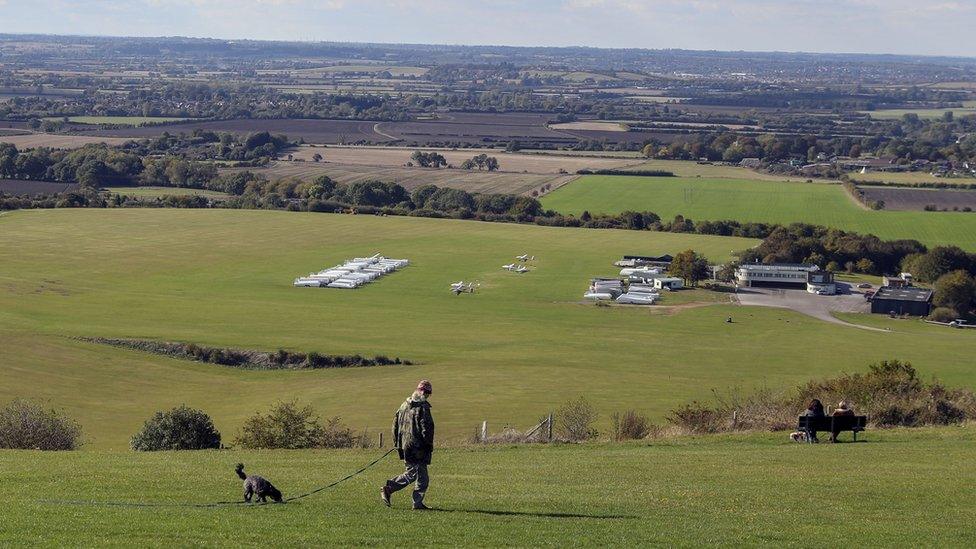
- Published12 March 2023
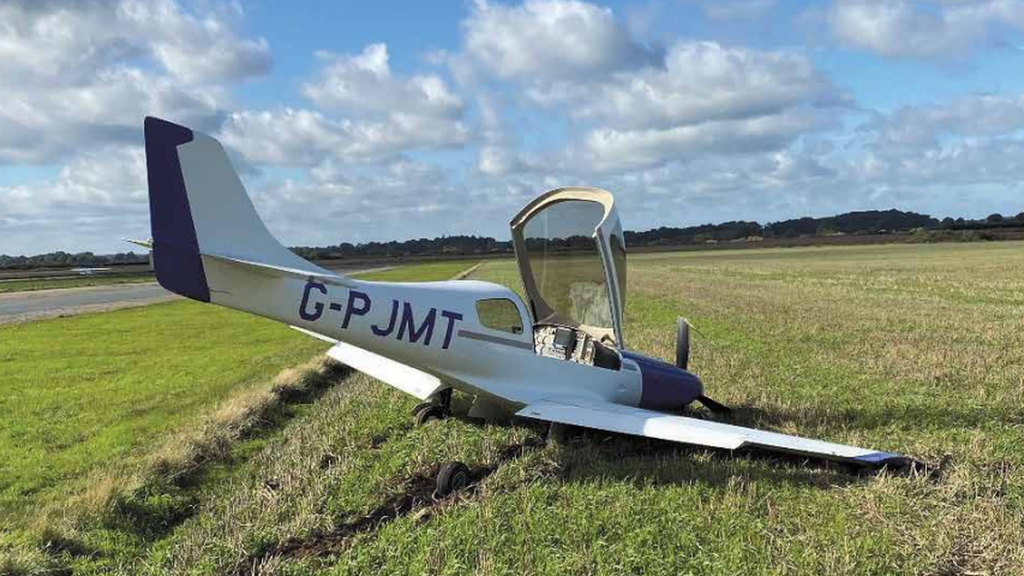
- Published2 February 2023
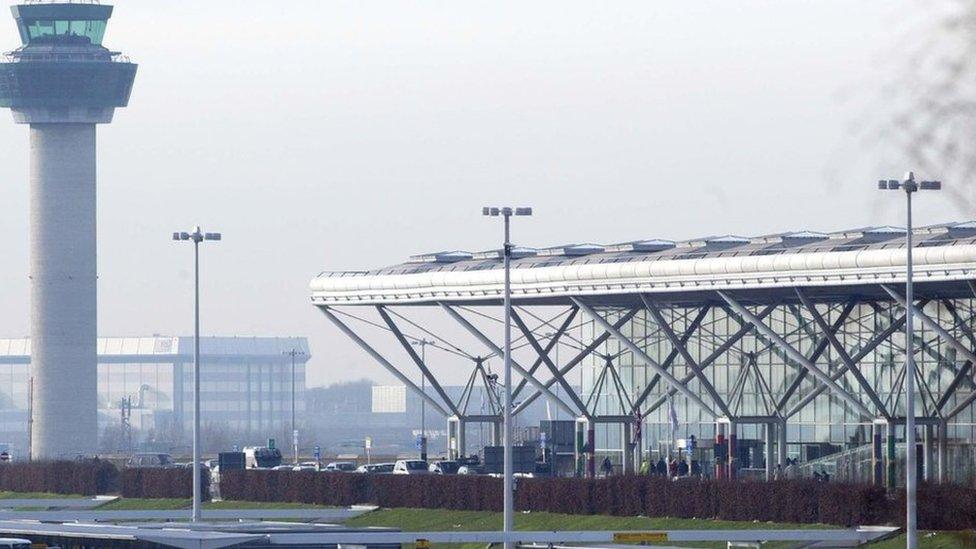
- Published22 April 2020
